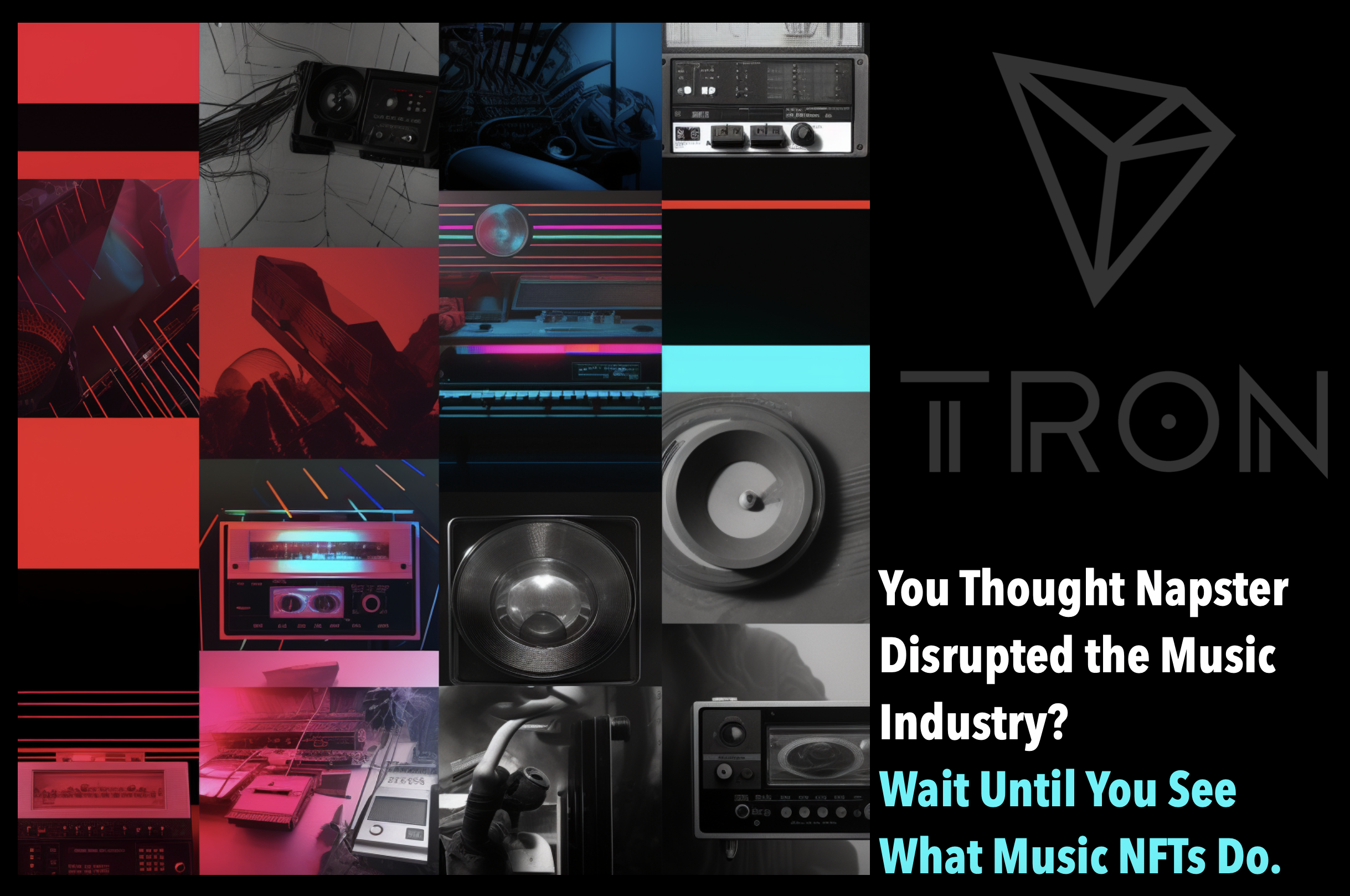Back in 1999, Napster shook the music industry to its core by creating a peer-to-peer file-sharing network that allowed users to share digital music files with each other. This led to widespread piracy and a significant decline in music sales. The music industry was forced to adapt, and the rise of streaming services like Spotify and Apple Music have helped it to recover.
But now, there’s a new technology on the horizon that has the potential to disrupt the music industry even more than Napster did. That technology is NFTs, or non-fungible tokens.
NFTs are digital assets that are verified on the blockchain and provide a unique, indivisible, and irreplaceable way of representing ownership. This means that musicians and other creators can use NFTs to create unique, one-of-a-kind digital assets that can be sold to collectors and enthusiasts, enabling a creator economy that values artists equitably listeners, too.
For musicians, this opens up new revenue streams beyond traditional album sales and streaming royalties. They can create and sell limited edition digital albums, singles, merchandise, and concert tickets. They can also use NFTs to provide exclusive experiences to their most dedicated fans, such as backstage passes or meet-and-greets.
NFTs also provide a way for musicians to maintain control over their intellectual property. With Napster, music was shared freely without the artist’s permission. But with NFTs, musicians can ensure that they are compensated for every use of their digital assets. The smart contract technology involved with NFTs allows for specific licensure to be built in and automated, both protecting the artist’s IP as well as empowering the owner of the NFT to use the asset in ways that the artist is comfortable with.
But NFTs aren’t just a way for musicians to make money. They also provide unique opportunities for collaboration and fan engagement. Multiple creators can collaborate on a single NFT, sharing ownership and profits. Fans can participate in auctions for exclusive digital assets, creating a sense of community and excitement around a musician’s work.
In summary, NFTs have the potential to revolutionize the music industry in ways that Napster never could. They offer new revenue streams, fan engagement, and control over intellectual property. Musicians who embrace NFTs now have the opportunity to be at the forefront of this technology and provide a unique value proposition to their fans.
The future of the music industry is about innovative artists sharing their creativity with a substantive group of super fans rather than a shallow list of millions of fans, and NFT technology makes this possible in a way that generates sustainable revenue. One music NFT sold for $20 makes an artist more money than thousands of song streams. It just makes sense.
TRON is aiming to bolster its Music NFT scene and welcomes artists who would #BUIDLtheFUTURE of music with us by engaging with the super fan in this way. It’s just one more example of how TRON is empowering decentralized commerce and community for every person on the planet.
